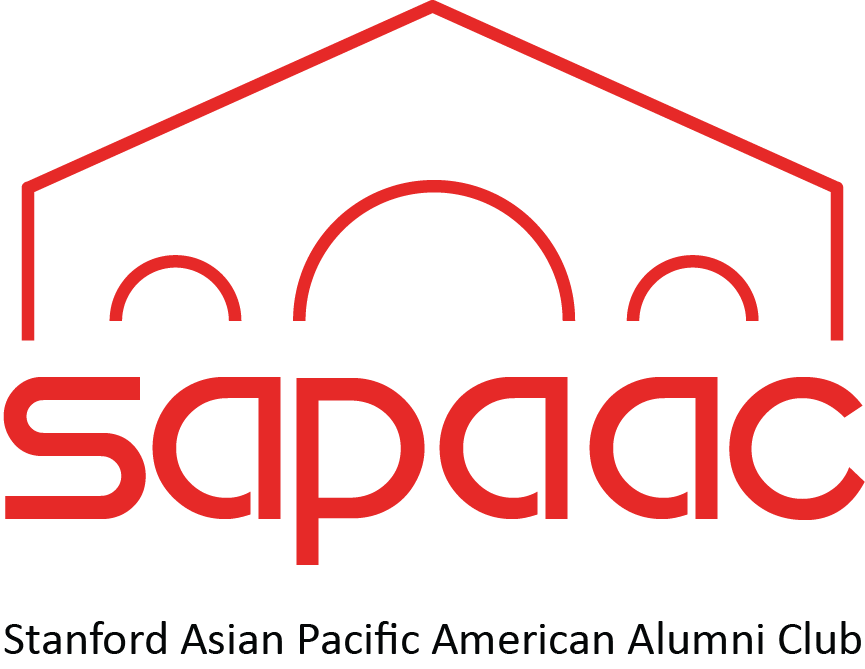The Lantern Festival on February 5 marked the end of Lunar New Year festivities. Societies in China, Korea, Malaysia, Singapore, and Taiwan count 2023 as the Year of the Rabbit, while Vietnam observes the Year of the Cat. Across the United States, Asian Americans used the holiday to connect with family and keep traditions alive. California declared the Lunar New Year an official state holiday for the first time, though it is unfortunately not a paid day off.
Dive Deeper into the Celebrations: Check out Lunar New Year celebrations in New York City through the lens of five AAPI photographers. Several AAPI chefs share memorable New Year dishes with NPR. Martin Yan, the 2022 James Beard Lifetime Achievement Award winner, explains the holiday’s connection to food. Younger generations re-interpret culinary traditions.
Asian Americans and Political Leadership
Bi-Khim Hsiao, Taiwan’s representative to the United States. Image source: Twitter
The Biden-Harris Administration released its first-ever “National Strategy to Advance Equity, Justice, and Opportunity for Asian American, Native Hawaiian, and Pacific Islander (AA and NHPI) Communities.” The strategy features action plans from 32 federal agencies (including all 15 Cabinet-level departments), addressing issues such as “data disaggregation, language access, and combatting anti-Asian hate.”
The New York Times called Bi-Khim Hsiao, Taiwan’s representative in the United States, “one of the most influential ambassadors” in Washington. Hsiao’s mother is American and her father is Taiwanese. Sheng Tao was sworn in as Oakland’s first Hmong American mayor. Hoan Huynh, the first state-level official in Illinois of Vietnamese heritage, joined the state legislature in Springfield. NPR explores why South Asians “are the most politically liberal…out of all Asian Americans groups.”
Commemorating Japanese American, Indian American History
On February 19, 1942, President Franklin D. Roosevelt issued Executive Order 9066, which forced 120,000 Japanese Americans from their homes and placed them in internment camps. To keep alive the memory of this dark period of American history, President Biden signed the Norman Y. Mineta Japanese American Confinement Education Act into law in January 2023. Sponsored by Representative Doris Matsui (D-CA), the act re-authorizes the National Park Service’s program to preserve the sites where Japanese Americans were confined, and offers new grants to create educational materials about their incarceration. While their families were incarcerated, thousands of Nisei (American-born Japanese) soldiers took on pivotal roles in the U.S. military in Europe and the Pacific.
Local communities are safeguarding the history of Japanese settlement and farming across the United States. The Japanese Hall built in Nebraska in 1928 has been incorporated into the Legacy of the Plains Museum. Hatano Farm in Southern California, which operated from 1953-2022, was the last Japanese American farm (photos) on the Palos Verdes Peninsula. It was forced to close by the city last year, but has now received two designations from the State Historical Resources Commission: Point of Historical Interest and inclusion on the California Register of Historic Resources.
One hundred years ago, in 1923, the Supreme Court took away American citizenship from Dr. Bhagat Singh Thind. Ashwin Ramaswami ‘21 writes about his life, legacy, and what we can learn from him today, in Indiaspora.
Developments in Asian American Studies
Students at the University of North Carolina have launched a petition calling on the school to “establish an Asian American Studies major/minor as well as an Asian American Studies program.” They are also seeking “disaggregated studies for Asian ethnicities.” A legislator filed a bill that, if passed, would require Florida schools to teach “History of Asian Americans and Pacific Islanders.”
Remembrances
Al Young, a descendant of Chinese railroad workers, was “the first Asian American race car driver to have ever won a World Championship in auto racing.” A longtime educator and a trustee of the Museum of History & Industry in Seattle, he passed away in December at age 76.
Professor Betty Lee Sung was a pioneering scholar, who founded the Asian American Studies Program at the City College of New York in 1972. She passed away in January at age 98.
The Impact of Anti-Asian Hate
An Asian American student at Indiana University was repeatedly stabbed in the head during a racially-motivated attack; she survived and is now out of the hospital. Michelle Go’s family marked the one-year anniversary of her death, after she was pushed in front of a New York City subway. A survey finds that anti-Asian hate in the workplace has negatively impacted the mental health of nearly 2/3 of Asian Americans. (Read “Strangers at Home: The Asian and Asian American Professional Experience” for more.) In New York, some AAPI voters chose Republican candidates in the last election, because of their concerns about “public safety, especially attacks against Asian Americans.”
Performance Pressure on ‘Model Minorities’
The New York Times describes how Asian American high schoolers “downplay…aspects of their identity” or “chang[e] their hobbies or interests as part of an effort to appear ‘less Asian’” on college applications. The attorney general of Virginia has launched a civil rights investigation into 17 schools that hid or delayed news of students’ awards in the National Merit competition, amid concerns that Asian American students were disproportionately impacted by this omission. A new study finds “systemic racial disparities” where scientists of Asian heritage experience the highest rejection rates when competing for National Science Foundation grants. This finding challenges the “common narrative that Asian Americans dominate the sciences and engineering.” While the “model minority myth” suggests “Asians don’t experience academic challenges,” lead author Christine Yifeng Chen explains, “that’s not true.”
Culture & Entertainment
The Academy of Motion Picture Arts and Sciences announced Oscar nominations for 2023, marking a record-breaking year for Asian actors and filmmakers, including 11 nominations for Everything Everywhere All at Once, with a largely AAPI cast. Among the nominees are Michelle Yeoh for best actress, Ke Huy Quan for best supporting actor, Stephanie Hsu for best supporting actress, and director Daniel Kwan sharing a best director nomination with Daniel Scheinert. (Yeoh and Quan recently also won Golden Globe awards for acting.) Others in the running include Hong Chau, for best supporting actress in The Whale, and Domee Shi’s Turning Red, for best animated feature film. Nobel Prize-winning novelist Kazuo Ishiguro is nominated for his screenplay for Living.
If Yeoh wins, she will be the first Asian woman to win an Oscar for best actress in the 95-year history of the Academy Awards. As many discovered on social media, Yeoh is not the first Asian woman to be nominated for best actress. Merle Oberon, who was nominated in 1935 for her role in The Dark Angel, holds that distinction; however, she kept her mixed South Asian heritage a secret, in order to maintain her status as a leading lady in Hollywood.
In a first for the toy manufacturer, American Girl named a South Asian doll, Kavi Sharma, its “Girl of the Year” for 2023.
Jeremy Lin revealed his marriage on social media. The former NBA star now plays in Kaohsiung, Taiwan.
Singer Gwen Stefani expressed her affinity for Japanese culture by declaring, “My God, I'm Japanese and I didn’t know it” in an Allure magazine interview. The journalist, who is Filipino American, shared her concern about the quote, generating a public outcry.
Asian American creatives are pushing new boundaries in media: Charles Kim, a Stanford lecturer, and Stephanie Lim, are launching Third State Books, a publisher specializing in AAPI works. Camelback Productions is Arizona’s first “female and South Asian-owned” film production company, promising “a focus on South Asian storytelling.” Woman-owned ChimeTV is the first U.S. cable network specializing in English programming for Asian Americans.
NYC-based artist Kenneth Tam explores the history of Chinese railroad workers through “sculptures of compressed dirt and detritus, horse saddles and leather straps” in a new exhibit at Ballroom Marfa in Marfa, Texas.
Ken Chen pays homage to late photographer Corky Lee, better known as the “unofficial Asian American Photographer Laureate.”
Asian American Foodies Unite
Delish profiled 25 different AAPI-owned food brands. Japanese American chef Tatsu Aikawa has crafted six unique Tatsu-Ya ramen establishments across Texas. James Beard Award-winner Cathy Erway interviews Chinese and Taiwanese chefs, who share the secrets of zhajiangmian, a noodle dish with a rich fermented sauce.
Activism on the Stanford Campus
The student-led 22% Campaign released a letter critiquing the Stanford administration’s “lack of support for underrepresented communities, such as Southeast Asian groups.” Student groups (called VSOs) hope the University will partner with them to train admissions officers “to better understand our communities,” disaggregate students' ethnic identities in admissions data, correctly represent Asian names on Axess (Stanford’s class registration database), and increase support for VSO’s outreach programs in high schools. The 22% Campaign’s letter to the administration can be read in its entirety here.
AsAmNews published a Q&A with SAPAAC op-ed writers Kevin Fan Hsu ‘08, MS ‘11 and Katie Gee Salisbury ‘07 about their efforts to commemorate the “often overlooked history of Asian Americans and Stanford”—including Chinese workers’ contributions to the university since its earliest days. The SAPAAC op-ed suggested an inclusive process of community engagement should guide any commemoration.
Volunteers from the Save Cantonese movement spoke on a podcast about their efforts at Stanford University and City College of San Francisco. Their campaigns began in response to the possible elimination of Cantonese language instruction at each institution, resulting in successfully defending language offerings in both places and the nation’s first community college certificate for Cantonese.
— Prepared by Kevin Fan Hsu and Katie Gee Salisbury. If you are interested in covering AAPI issues with the SAPAAC Advocacy & Education team, please reach out to khsu@alumni.stanford.edu

